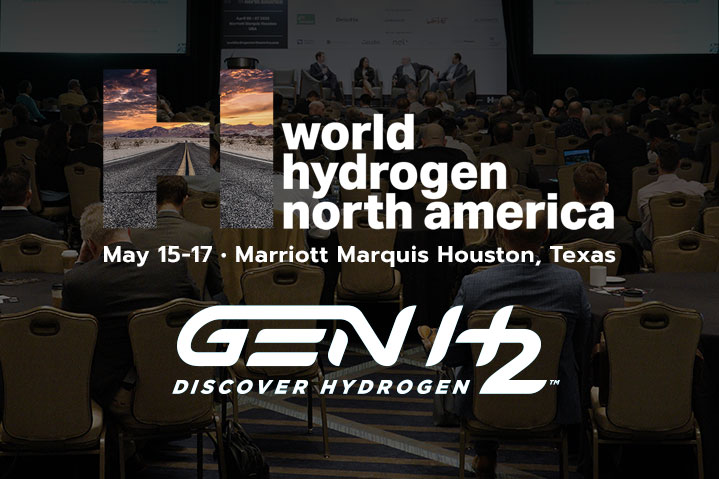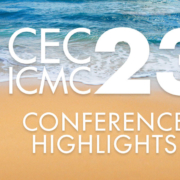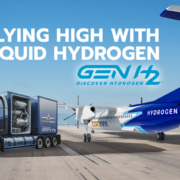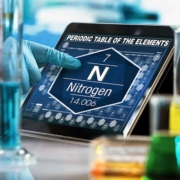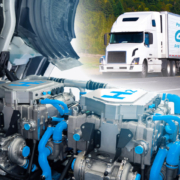Unlocking the Hydrogen Powerhouse in North America
By: GenH2 Staff
Read Time: 3 minutes
North America is seeing the largest increase in planned hydrogen projects globally and this number is only expected to grow as the industry progresses and demand increases. Canada, Mexico, and USA agreed at the beginning of this year to work collaboratively to support the transition to clean hydrogen and rapidly reduce emissions across the continent. Arguably all eyes have been focused on the USA since the IRA announcements last year, however the USA’s neighbors hope to step up their game and capitalize on this blooming industry.
With this new commitment to collaborate to reduce emissions, the World Hydrogen North America conference became a key forum for over 700 industry leaders from around the world who share passion for advancing hydrogen’s role in renewable fuel infrastructure. Participants agreed that we are at a critical juncture in our climate and sustainability journey including the important role hydrogen will play in transportation and electric utilities. The rapidly growing demands on the grid and how hydrogen can help increase reliability while reducing emissions was a recurring theme. As with previous conferences in 2023, the lack of infrastructure for hydrogen continues to be a challenge.
The conference featured over 150 thought leaders across the hydrogen value chain with a key theme of connecting supply and demand, policy updates, off-taker procurement, project funding and potential risks in financing hydrogen projects were just a few of the subjects covered during the sessions. Numerous collaborative panels discussed industry successes as well as problems and potential challenges that could slow widespread adoption. Additionally, masterclasses were presented on subjects such as hydrogen certifications, low carbon hydrogen production technology and financing projects.
One of the highlights of the conference was the panel on Accelerating the Roll-Out of Zero Emission Heavy Duty Trucks, which reviewed the latest innovations in technology and infrastructure and considered the impact policy will have on this sector in transitioning to cleaner fuels and the role of standardization in accelerating roll-out. The panel featured:
- Tak Yokoo, Chairperson, Japan Hydrogen Forum
- Cullen Hall, VP Product Development, GenH2
- Margarita M. Mann, Director – Complete Vehicle, Volvo Group Trucks
- Martin Lin, Specialist Leader, Deloitte Risk and Financial Advisory
The central question the panel addressed was “how do we balance organic evolution and pushing to scale?” and the participants drilled down on three major points:
- Education, infrastructure, partnership, and policy are critical to success.
- Pricing and accessibility are essential to adoption.
- Hydrogen is key for heavy-duty trucks and liquid hydrogen is even more appropriate.
The conference also provided engaging insights on blue hydrogen technologies, unpacking global legislations and how to decarbonize existing assets at mega scale. The overarching takeaway was that unleashing hydrogen’s potential requires finalizing IRA other key rules and policies, further stimulating North American demand adoption, and mobilizing supply chains. Issues touched on during the 30-hour agenda of presentations included:
- How low carbon hydrogen hubs or “regional hydrogen” align with existing demand and why increased demand is essential to enable the hydrogen value chain to succeed and speed adoption.
- Low-carbon hydrogen production and the need to identify whether blue vs. green is the best for each use case.
- Capitalizing on IRA Incentives, navigating regulations, licensing paths for clean hydrogen and anticipating new mandates.
- Determining how to produce affordable hydrogen at scale, while focusing on markets with major emissions problems.
- The role of the United States, North American export potential and competitiveness, and building a global consensus around hydrogen.
- Importance of innovation in hydrogen research & development (R&D) in giving rise to hydrogen projects across continents.
The World Hydrogen North America conference left no doubt that much is required from government, businesses, and individuals to respond to the need for reliable energy sources that meet sustainability goals. It would not be an overstatement to conclude that all the attendees believe that enabling infrastructure, technologies, project development, execution and delivery is vital for transition to net-zero and transforming the energy system. The forum made it clear that the opportunities for rapid investments in transmission and distribution for hydrogen-enabling infrastructure are endless and will provide end-use sectors with the required network infrastructure to forge a global #hydrogeneconomy.
